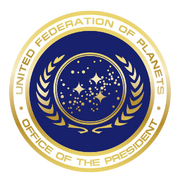The term President wasn't invented by the USA, I will grant you that that the USA was the first to use it to mean the Head of State but the term President was in use before then.
I know. But how it is relevant?
But in the case of China, the President is the head of State but the Premier is the head of Government.
The same is true for India. Although in China's case, the president is in fact more powerful than the premier, while India is the country where the prime minister is running the show.
But other countries have had an impact on the political systems around the world as whilst other frms exist we basically have the Parliamentary(sometimes called Westminster) system or the Presidential System. Both systems have their pros and cons.
That's more or less my point. The United States invented the presidential system, which essentially means that America came up with one of the two dominant forms of government which are in use around the world today. The other one was invented in Britain.
Interestingly, the United States did so at a time when it neither had a very large population nor were a very powerful country. But it was considered a very good idea. That's something we have to factor in too.
China always had an extremely huge population and was a influential power for most time in history. Nevertheless, no country in the world is currently ruled by an absolute emperor. And there are only four other countries in the world which still follow the traditional "Marxist-Leninist" model of government.
So, the Chinese could propose anything they'd like. It still wouldn't make much difference if the rest of world considers it a shitty idea.




